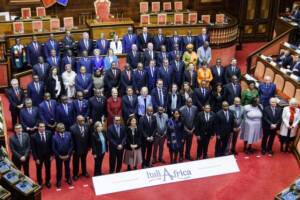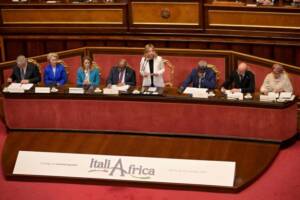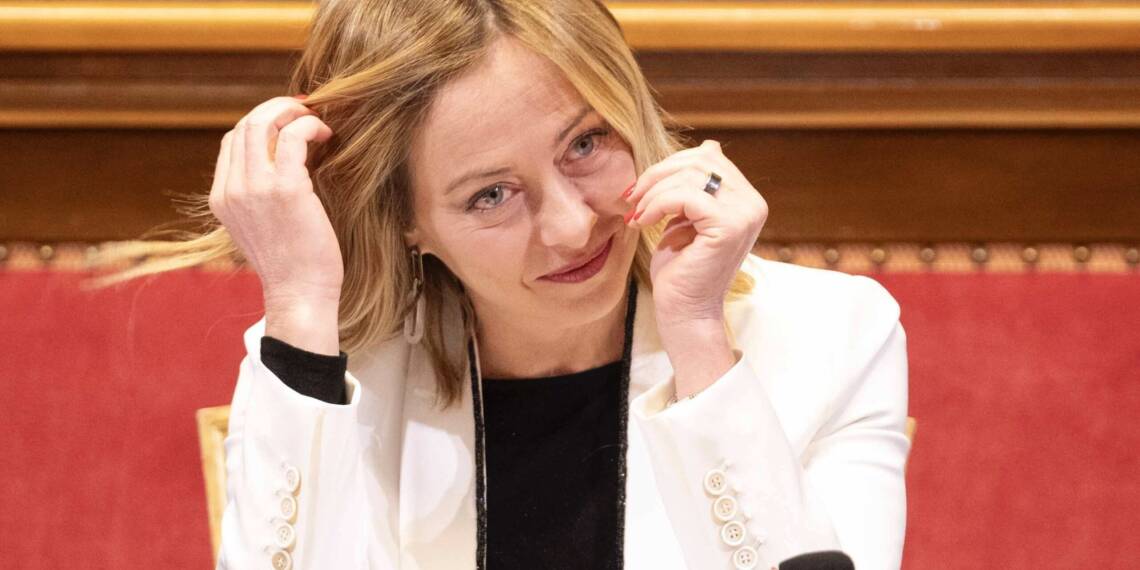The G7 is making waves as Italy kicks off its presidency this year. With a chance to use its rich history and culture, Italy can play the role of a bridge between the “West” and the “Rest.” The world has its eyes set on Italy whose G7 presidency can be a breakthrough for the ‘West’ and the ‘Rest’.
With Italy taking the presidency the contrast between the West and the Rest has become more pronounced, marked by the return of war in Europe and great power competition—embodied most clearly by the rivalry between China and the United States. Countries from the developed Western bloc have united in support of Ukraine striving to fight the Russian bear. Concurrently, a group of nonaligned nations has chosen not to take sides, resisting the binary definition through which Western countries tend to see the world.
Join us on Telegram: https://t.me/tfiglobal
Various factors contribute to the widening gap between the Rest and the West, with a common critique being that the Western perspective often seems tailored to serve its own interests—a trend notably evident in NATO’s positions. However, with Meloni assuming leadership, the G7 is poised for a significant shift. While G7 gatherings mirror NATO meetings, where global leaders, predominantly Western powers, convene to discuss crucial issues, the repetitive focus on Ukraine in NATO discussions contrasts with the diverse agenda the G7 could embrace under Italy’s leadership. Traditionally dominated by the US and its Western allies like the UK, Japan, France, Canada, and Germany, the G7, with Meloni at the helm, holds the promise of steering away from the Ukraine-centric discourse prevalent in recent NATO summits.
Now there seem to be growing tensions within the West, as issues—ranging from climate change, woke agenda, Ukraine and many more will end up on the back burner.
If we look at the recent trend then we can see the West vying for dominance.Concepts that were previously considered indisputable dogmas now find themselves under attack or relegated to the sidelines of international politics. These include the pivotal role of the United Nations, the empowerment of regional organizations like the European Union, the reinforcement of international law and human rights protections, and the promotion of free trade as well as the unrestricted movement of capital and people.

And now the road ahead definitely goes through Rome. Situated at the heart of the Mediterranean, Italy has been assessing these imbalances and exploring avenues to chart a different course.
Read More: EU Turns to Africa for Gas Amid Russian Sanctions
Rome is actively engaged in reshaping traditional power dynamics and cultivating a new mindset—one that sees the West not in opposition to the Rest, but as collaborative partners in a shared global pursuit. Italian diplomats advocate for a reconfiguration and enlargement of seats on the United Nations Security Council, seeking to enhance regional representation through a more equitable geographical distribution.
These initiatives are channeled through the reinforcement of diplomatic networks meticulously nurtured by Italy in recent years. A notable example is its strategic partnership with India and the strong rapport Prime Minister Giorgia Meloni has established with her Indian counterpart, Narendra Modi, facilitating the African Union’s inclusion in the Group of Twenty (G20). Beyond New Delhi, Rome has broadened its bilateral ties across the Indo-Pacific region, where rapidly emerging nations vie for recognition on the global stage.
Concurrently, Meloni has led a significant initiative to redefine Italy’s ties with African nations, recently introducing a novel model of cooperation known as the “Mattei Plan.” This approach, unveiled at the Italy-Africa Conference in Rome, revolves around non-predatory, investment-based partnerships spanning industries like energy, infrastructure, and telecommunications, as well as collaborations in academia and politics.
The cultural affinity and cross-forum cooperation between Rome and Brasilia provide a fertile opportunity to establish deeper dialogue between the West and the BRICS, extending an olive branch to emerging powers, and curbing the West’s inclination to form an “anti-BRICS” front.
Now, let’s take a look at how Italy can establish the agenda for collaboration.
Italian PM Giorgia Meloni has already begun progressing in that direction, marked by the recent opening of the Italy-Africa Summit this Monday. During the summit, she unveiled her comprehensive plan aimed at investing in the sustained development of numerous African countries, with a strategic focus on curbing human trafficking and illegal migration across the Mediterranean.
Read More: Trucks in Brussels, EU has been invaded
Named the “Mattei plan” after Enrico Mattei, the late founder of the state oil company Eni, who championed the systemic economic development of Africa, the initiative envisions providing Italian grants and loans to support infrastructure development and strengthen economies in dozens of African nations. Rome anticipates that this comprehensive approach will contribute to the stability of the entire continent.

The summit drew representatives from 45 African countries, including 19 heads of state, six prime ministers, and three foreign ministers. Global leaders from the UN, the World Bank, and the EU, including Commission President Ursula von der Leyen, also attended the event.
The Italian government is actively working on the Mattei plan’s details, including the development of a new, long-term financing instrument with an initial endowment exceeding €5.5 billion, encompassing credits, gift transactions, and guarantees.
This strategy, however, disregarded the opinions of leaders from other European nations. Italy seems to be forging ahead with unilateral decisions, challenging the status quo of global forums like G7, NATO, and the EU, which have long fixated on issues like Ukraine. Meloni is poised to shake things up, signaling that G7 meetings under her leadership won’t conform to the predictable pattern of pro-Ukraine or anti-Putin discussions seen in regular NATO summits.
While Georgia Meloni officially denies any soft corner for Vladimir Putin, her pro-Russia stance during the war has been unmistakable. The Italian right, aligning itself with Putin, found Meloni’s victory to be favorable news for the Russian President. Despite Meloni’s claims of sympathy for Ukraine, her actions tell a different story. Italy has consistently refrained from providing aid or weapons to Ukraine, openly acknowledging its non-involvement.
Meloni’s conservatism and anti-woke agenda are evident, targeting what she views as the erosion of traditional family values and illegal immigration. It’s essential to note that she holds strong anti-Islam views. Giorgia Meloni consistently makes provocative remarks about Islam, emphasizing that she firmly believes “there is no place for Islamic culture in Europe.” According to her, there exists a fundamental compatibility issue between Islamic culture and the values and rights of Western civilization.
Critics argue that Meloni’s positions are divisive, fostering right-wing extremism and straining relations with Brussels while aligning Italy with Eurosceptic and nationalist forces.
Clearly, in stark contrast to previous NATO and G7 meetings dominated by discussions on Ukraine, combating Russia, and woke ideologies, Meloni’s presidency is promising a departure from this narrative, steering the bloc in an entirely new direction.








